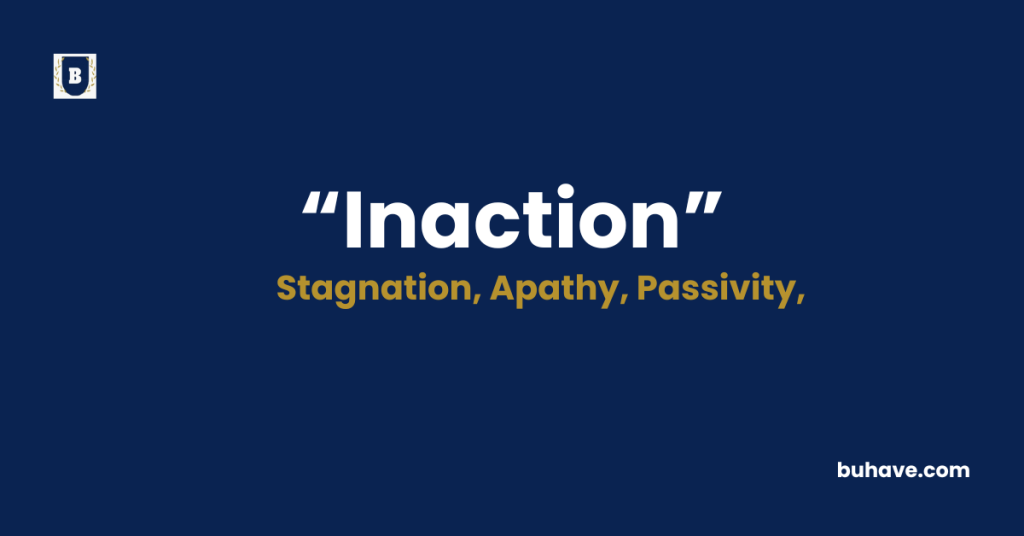The word ‘Inaction’ (Noun) refers to a lack of action, effort, or decision, especially in situations where some response is expected or necessary. In this guide, you’ll learn the full definition, synonyms, antonyms, etymology, and real-life examples of how to use ‘Inaction’ correctly in sentences.
Inaction Explained in Depth
A complete and detailed guide to the word Inaction including meaning, definition, examples, etymology, synonyms, and antonyms.
Meanings of Inaction
‘Inaction’ describes the state of doing nothing, delaying response, or showing a lack of movement or initiative. It often suggests avoidance, negligence, or hesitation, especially when some effort or decision is expected.
Definition
Inaction is the absence of activity, decision, or progress, particularly when some form of intervention or effort is required. It implies passivity, stillness, or failure to respond to a situation appropriately.
Etymology
Formed from the prefix “in-” (meaning not) + “action,” derived from Latin “actio” (a doing or performance). The term ‘inaction’ entered English in the late 16th century and has since described the concept of failing to act when action is expected.
Example Sentences
- The government’s inaction in response to the crisis drew widespread criticism.
- Her inaction during the emergency shocked everyone.
- Years of inaction led to the project’s eventual failure.
- Inaction is sometimes more harmful than making the wrong decision.
- They paid the price for their inaction when the issue escalated.
Inaction Synonyms
- Passivity
- Stagnation
- Neglect
- Idleness
- Inertia
- Stillness
- Immobility
- Lethargy
- Nonresponse
- Silence
Inaction Antonyms
- Action
- Activity
- Response
- Initiative
- Effort
- Movement
- Intervention
- Engagement
- Participation
- Decision
FAQs about Inaction
Here are some frequently asked questions (FAQs) about the word “Inaction”
1. Is inaction always negative?
Not always. In some cases, inaction can be a strategic decision, but often it is viewed negatively when response or action is needed.
2. How does inaction differ from indecision?
Inaction refers to not doing anything, while indecision means being unable to decide. Indecision can lead to inaction.
3. What are common causes of inaction?
Common causes include fear, uncertainty, procrastination, lack of resources, or overwhelming responsibility.
4. Can inaction be deliberate?
Yes. Sometimes people choose inaction as a deliberate approach, either to avoid conflict or wait for better timing.
5. What are the consequences of inaction?
It can lead to missed opportunities, failure to solve problems, and deterioration of conditions due to neglect.

















